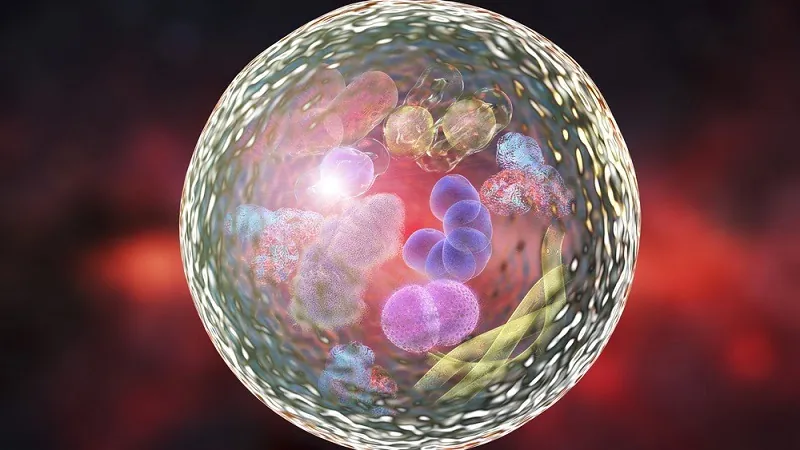In a new systemic review published in Autophagy Reports, researchers have demonstrated that exercise plays a role in regulating autophagy, depending on its type [1].

Manipulating autophagy
Disabled autophagy was recently acknowledged as a hallmark of aging. Indeed, boosting the ability of cells to get rid of unnecessary and damaged organelles and molecules is considered a promising anti-aging strategy.
As shown in animal and some human studies, autophagy activation can be achieved with fasting and exercise, therapeutic interventions such as rapamycin and lithium, and even ultrasound treatment.
At the same time, just like with any other molecular process, autophagy manipulation should be fine-tuned in a context-specific manner to achieve beneficial results. Hyperactivation of autophagy might be toxic in some situations, such as for DNA damage repair [2].
Exercise is believed to activate autophagy, particularly mitophagy, the removal of damaged mitochondria. This conclusion mostly comes from animal studies, whereas human data on exercise-induced autophagy is less consistent.
In this systematic review, the researchers analyzed the results of 26 studies assessing the autophagic response to exercise in humans. The studies measured various autophagy markers in skeletal muscles, peripheral blood mononuclear cells (PBMCs), or both in participants engaging in various exercise forms and intensities.
Autophagy response to exercise
First, the researchers showed that the levels of two autophagy markers, microtubule-associated proteins 1A/1B light chain 3B (LC3-II) and sequestosome 1 (SQSTM1), were consistent with reduced autophagy following an acute bout of resistance exercise and increased autophagy following long-term resistance exercise.
The researchers did not detect any change in LC3-II following either acute or long-term (over several weeks) moderate- and vigorous-intensity endurance exercise. Only long-term vigorous-intensity endurance exercise was accompanied by altered levels of SQSTM1.
Next, the researchers found a tissue-specific autophagy response to exercise. Exercise was associated with lowered LC3-II and increased SQSTM1 levels in skeletal muscle, which corresponds to attenuated autophagy. This effect was largely due to resistance exercise. The opposite effect, induced autophagy, was observed in PBMCs in response to exercise. This suggests distinct autophagy regulation mechanisms in different tissues.
Finally, the researchers showed that several other autophagic and mitophagic markers, such as BNIP3, Beclin-1, and ATG12, were increased in the analyzed studies, including those that involve endurance exercise. However, because it was not accompanied by changes in LC3-II and SQSTM1 levels, the effect of endurance training on autophagy remains unclear.
Abstract excerpt
Our findings demonstrate that physical exercise probably regulates autophagy in an exercise modality- and tissue-dependent manner in humans, although further investigation is needed. Customized exercise prescriptions should be aimed for when implementing exercise to regulate autophagy in humans.
Conclusion
This study demonstrated that long-term resistance training might be the best exercise for increasing autophagy in humans. The beneficial health effects of other exercise types, such as endurance training, might be via mechanisms other than activated autophagy.
The limitations of this systematic review include autophagy measurements limited to western blot analysis of some protein markers, analysis of only two tissues, and studies conducted mostly on young and middle-aged healthy participants.
Literature
[1] Chen X-K, Zheng C, Siu PM-F, Sun F-H, Wong SH-S, Ma AC-H. Does Exercise Regulate Autophagy in Humans? A Systematic Review and Meta-Analysis. Autophagy Reports 2023; 2: 2190202.
[2] Guo C, Zhao Y. Autophagy and DNA damage repair. Genome Instability & Disease 2020; 1: 172–183.



